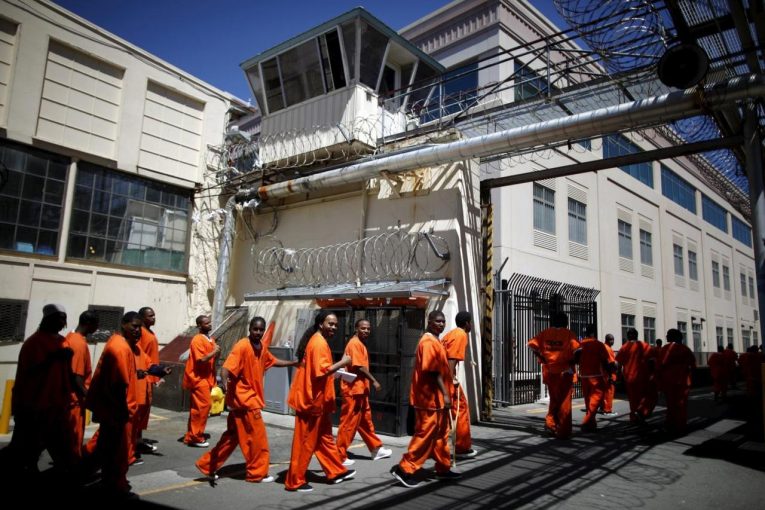

By Esha Kher
SAN QUENTIN, CA – The California Supreme Court began hearing oral arguments this past Wednesday for the death penalty appeal of Donte McDaniel, a case which could lead to reverse of hundreds of the state’s pending death sentences.
McDaniel’s appeal is for a conviction of two gang-related murders in 2004. In April 2004, McDaniel and his companion Kai Harris entered a Los Angeles apartment to demand money for a gang-related drug sale.
In this encounter, McDaniel allegedly ended up shooting and wounding two people and was subsequently convicted and sentenced to death in 2009.
The defense’s main argument is rooted in “whether procedures in California capital cases have allowed prosecutors to sidestep state laws requiring jurors to decide, by a unanimous vote, that the evidence supports a death sentence,” according to the San Francisco Chronicle.
Under state laws passed in 1977 and 1978, jurors must decide whether the crime involved “aggravating factors” and must then weigh them against any factors in the defendant’s favor in order to decide whether the verdict should be death or life without parole.
“The ‘aggravating factors’ — for example, that the murder was gang-related, had multiple victims, was motivated by the victim’s race, religion or nationality or was particularly ‘heinous,  atrocious or cruel,’ or that the killer had committed other murders – (must be weighed against) mental problems and outside pressures,” said the San Francisco Chronicle.
atrocious or cruel,’ or that the killer had committed other murders – (must be weighed against) mental problems and outside pressures,” said the San Francisco Chronicle.
Though the final verdict must be unanimous, jurors don’t need to agree on the reasons. In People vs. McDaniel, the court considers whether jurors should have to find, unanimously, that the crime involved specific aggravating factors but, separately, whether the death sentence was justified.
The standard that these decisions have to be beyond a reasonable doubt currently applies to criminal convictions but not to sentencing decisions.
McDaniel’s lawyers and the law professors who support him claim the California constitution and state fundamental criminal law both require verdicts based on a jury’s determination of the facts which are “unanimous and beyond a reasonable doubt,” so the current death penalty rules violates that standard.
During the oral arguments this week, the justices focused on rulings dating back to the mid-19th century, the change in responsibilities of juries in criminal trials over time, and queries about whether the penalty phase requires juries to follow the same “reasonable doubt standard used when determining whether the defendant is guilty.”
The legal arguments in the McDaniel case prompt further discussion about the irredeemable shortcomings of the death penalty system such being skewed by racism, poisoned by human error, and there being inconsistencies between different states laws and federal law, legal experts and commentators note.
Gov. Gavin Newsom filed an amicus brief that assesses the historical relationship between racism and capital punishment, highlighting how capital punishment is rooted in the legacy of slavery, racial terror, subjugation and disproportionate removal of African Americans from capital juries.
“The weight of the decision is reflected in the attention paid to the case” by Governor Newsom’s amicus brief “urging the court to throw out the sentence while rightly taking broader aim at capital punishment itself as too freighted by racism to stand,” according to the LA Times.
The Times added, “Ultimately, it is impossible to make capital punishment just and fair because it relies on the thoughts and actions of human beings. It is as flawed as society itself, and it requires a level of willful blindness to not recognize that. It cannot be fixed. And the state Supreme Court can recognize that reality in this case and throw out the entire system. Justice demands it.”
 Esha Kher is an undergraduate student at UC Davis studying Political Science and Computer Science, hoping to pursue a career in corporate law. She is passionate about legal journalism and political advocacy that provokes new perspectives and sparks conversation among the public.
Esha Kher is an undergraduate student at UC Davis studying Political Science and Computer Science, hoping to pursue a career in corporate law. She is passionate about legal journalism and political advocacy that provokes new perspectives and sparks conversation among the public.
To sign up for our new newsletter – Everyday Injustice – https://tinyurl.com/yyultcf9
Support our work – to become a sustaining at $5 – $10- $25 per month hit the link: